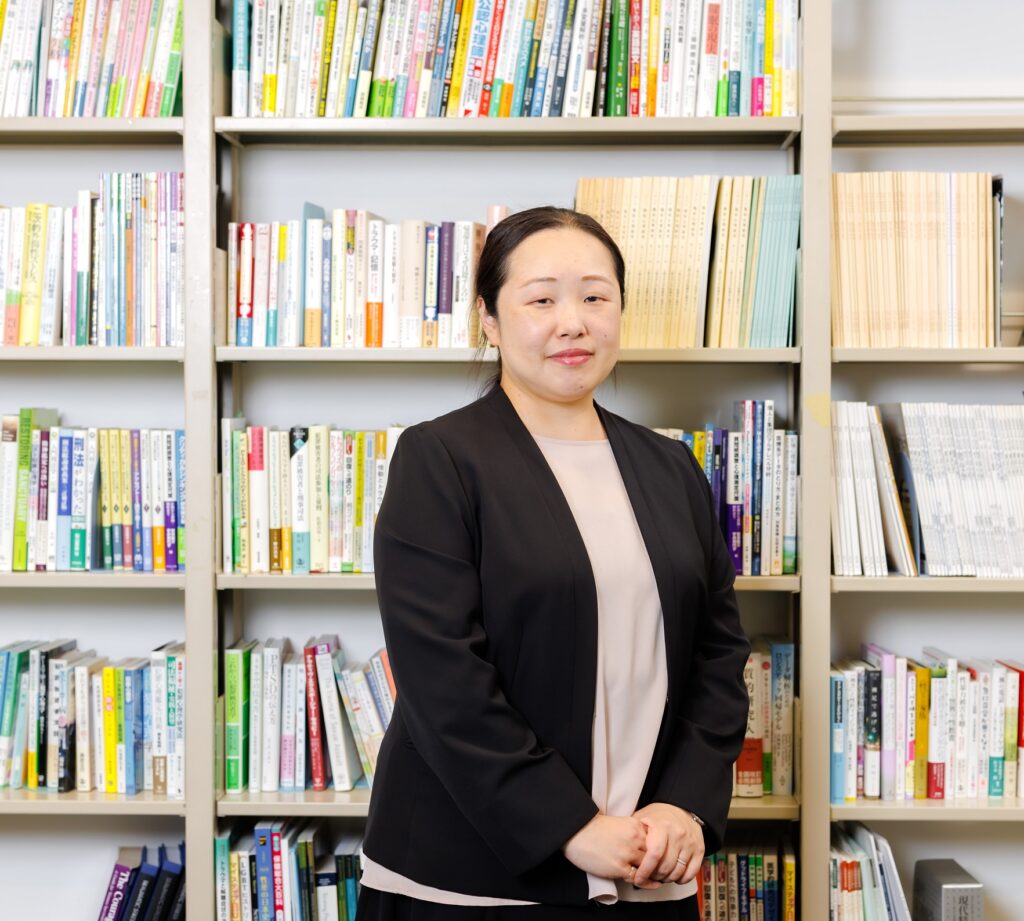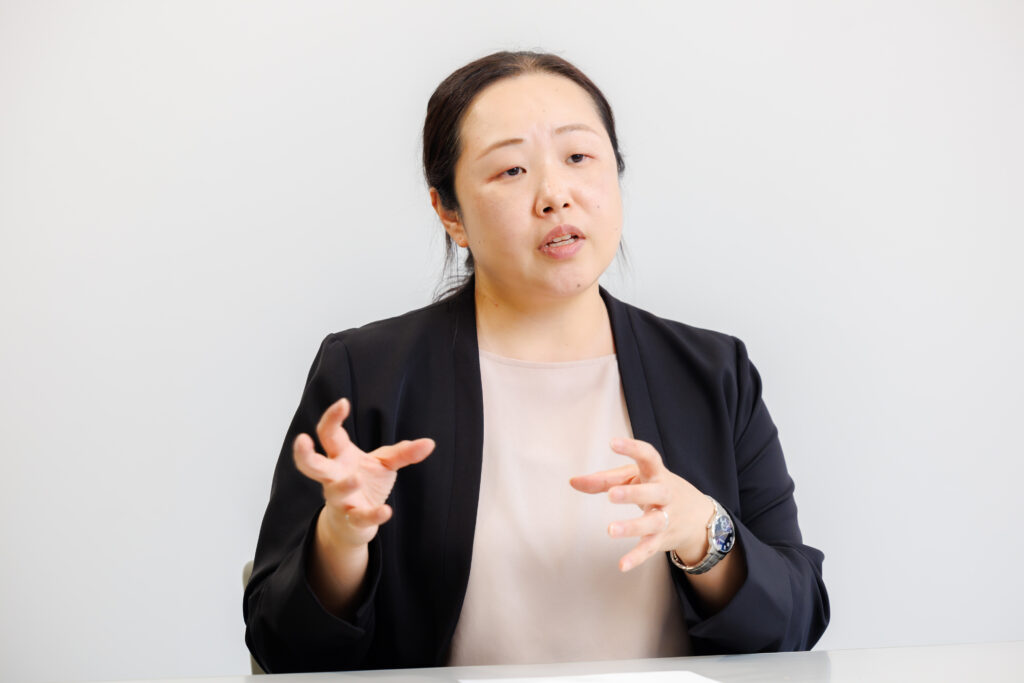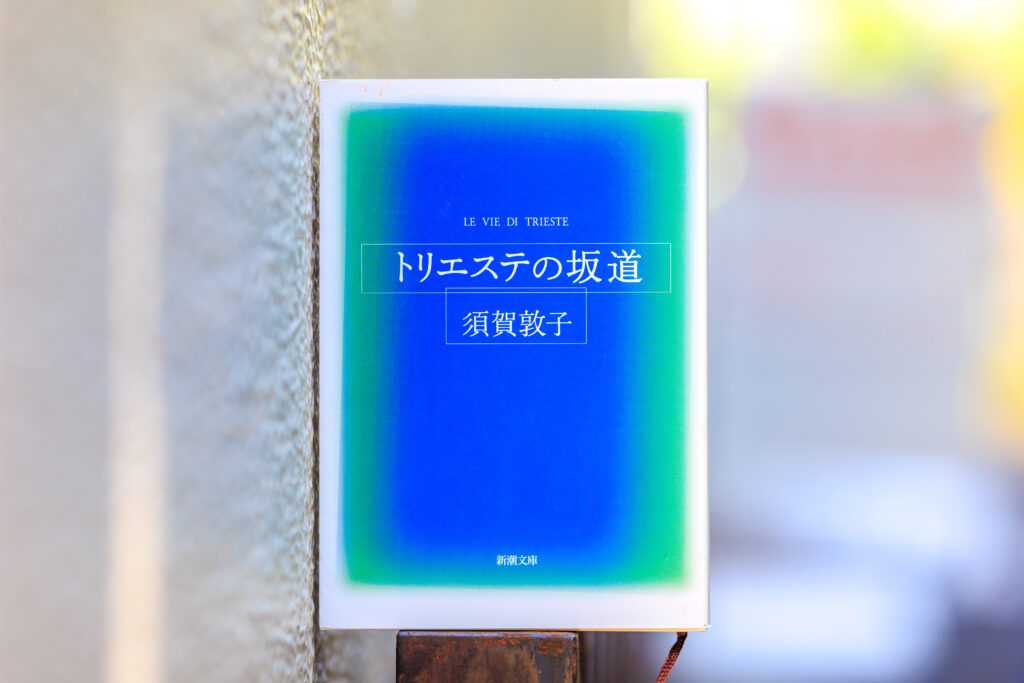
Associate Professor Azusa Saito of the Faculty of Human Sciences specializes in clinical psychology. Her research focuses on providing support for victims of sexual violence, who often suffer from deep psychological scars. Here, Saito discusses the importance of society gaining a proper understanding of sexual violence and its impact.
Sexual violence, as its name suggests, is a form of violence. However, discussions around sexual violence often give rise to critical opinions such as victim-blaming statements like “They shouldn’t have been wearing such revealing clothing,” or “they shouldn’t have been walking in such a place alone.”
But such thinking is founded on gender-based prejudices that assert “women ought to be virtuous” or “real men do not become victims”, or on the just-world fallacy that assumes people are rewarded or punished as they deserve.
In my research, I seek to understand the psychological state of sexual violence survivors and identify the support necessary to reintegrated into everyday life. The majority of victims of sexual violence believe that they are at least partly to blame, yet such thinking is deeply rooted in mistaken preconceptions or an erroneous understanding by society at large.
For this reason, when speaking directly with victims and providing them with care, it is critical to establish that they were, in fact, victims of violence.
Promoting understanding to reduce prejudice and offenses

Through my research, I hope to encourage a proper understanding of sexual violence and how to support victims of sexual violence. I believe this will contribute directly to preventing sexual violence.
In schools, for example, instances of teachers perpetrating sexual violence on pupils often occur in places that are hidden from view. Raising awareness of this particular form of sexual violence can result in the creation of school environments where an adult and child are never alone together.
In addition, a number of perpetrators of sexual violence are unaware that non-consensual sexual activity constitutes an act of violence, even if the victim is a partner or someone else with whom they share a close relationship. Educating society on what types of actions are defined as sexual violence can also lead to a reduction in the number of offenders.
Providing first-hand support to victims is vital to understanding the prevalence of sexual violence in society, and in determining the support victims truly require. Clinical psychology is a field in which researchers think things through together with people facing psychological issues. The majority of researchers who specialize in clinical psychology recognize the importance of going into the field and listening directly to the voices of various people.
In order to prevent counseling itself from causing secondary victimization, which can further harm victims, it is essential that counselors undergo specialist training in word choice and methods of conversation, so that they provide victims with reassurance. And, in order to provide continued support, it is also crucial that counselors receive training to deal with the psychological trauma that they themselves undergo as part of the counseling process.
Honoring the courage of survivors who retell their traumatic experiences
My research is only possible because there are victims who choose to talk to and work with me; these people show immense courage in recalling painful memories, and I am driven to do everything I can to repay them.
The end goal of my research is to create a society in which victims can receive proper support, and in which they do not suffer harm a second or a third time. Going forward, I intend to continue collaborating with care workers at victim support centers, as well as with lawyers, the police, and doctors; I also intend to investigate cases of victimization among men and sexual minorities, and to focus on training care-givers, too.
The book I recommend
“Le Vie di Trieste”(The road to Trieste)
by Atsuko Suga, Shinchosha

This is an exquisitely written essay recounting the life of a Japanese woman and her family living in Italy. Every time I read it, I am inspired by the writer who retains a powerful joie de vivre in the face of unreasonable happenings. It makes me feel that I, too, can persevere endlessly.
-
Azusa Saito
- Associate Professor
Department of Psychology
Faculty of Human Sciences
- Associate Professor
-
Associate Professor Azusa Saito graduated from the Department of Psychology, Faculty of Letters, Sophia University, and received a Ph.D. in Psychology from the university’s Graduate School of Letters. After working and providing hands-on psychological support as a school counselor and victim support worker, Saito worked as an Associate Professor at the Department of Psychological Counseling, Faculty of Psychology, Mejiro Gakuen, before being appointed to her current role in 2023.
- Department of Psychology
Interviewed: May 2023